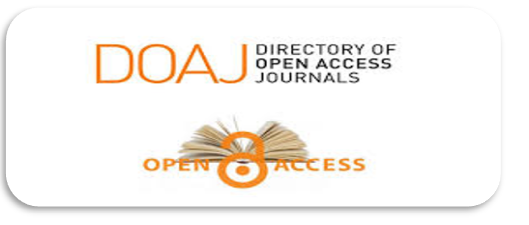Authorship Policy
Authorship
Authorship is a system for attributing credit and liability for the content of published works. Recognition and accountability cannot be separated. Providing an accurate account of the events is the guiding concept for establishing authorship. The authorship criteria apply to all types of intellectual activity, including printed and digital releases of text, data, and images. Additionally, authorship implies accountability and responsibility for published works. Authors are those who have made significant intellectual contributions. Authorized authors are aware of their responsibility and obligation for published content. These criteria reduce substantial ambiguity regarding contributions but do not address the requisite quantity and quality of assistance for authorship.
CRITERIA FOR AUTHORSHIP
Everyone who made significant intellectual contributions to the study underpinning the article (such as to the research question, design, analysis, interpretation, and written description) should be listed as an author. Only those who have made significant contributions to knowledge should be considered authors. Although these contributions may be acknowledged in the publication, providing technical services, translating text, identifying patients for the study, delivering materials, and providing funding or administrative oversight of the facilities where the work was performed does not constitute authorship. One author (a "guarantor") should be accountable for the whole work's integrity. This is usually the corresponding author who submits the work and gets evaluations, although other authors may also serve in this capacity. All authors must approve the final version of the text. Ideally, every author should be familiar with every aspect of the work. However, current research is often conducted in teams with complementary skills, so not all authors may be conversant in every part of the study. Consequently, the contributions of certain authors may be limited to particular areas of the whole work.
NUMBER, NAMES ORDER, AND AUTHORS DISPUTES
The RJCSM editorial board does not restrict the number of authors for each submitted manuscript, whether it is authored by one or multiple individuals. In many cases, manuscripts with multiple authors benefit from a stronger scientific and literary structure, especially when ideas are shared among authors from different scientific or academic institutions. In such cases, an "authors contribution" paragraph should be included when not all authors share equally in all experiment stages, result recording, data explanation, and final manuscript approval. If multiple authors contribute to one manuscript, all of them should meet the minimum requirements of authorship criteria, as explained previously. In addition, the Editor-in-Chief can ask for more details about authorship contributions and explanations. If the Editor-in-Chief suspects any form of nepotism, they have the authority to omit names in the final accepted copy of the submitted manuscript.
Furthermore, the authors should determine the sequence in which their names appear. No one else comprehends their contributions and agreements as well as they do. If the authors have not disclosed the method for assigning an authorship order, readers cannot know and should not assume the importance of the authorship order. Ideally, authorship disputes should be settled locally before the journal peer review process starts. In special cases, the Editor-in-Chief may help to resolve these disputes. If there are any changes in the authorship order or omitting authorship, these changes should be supported by a written request from all original authors at different stages of the manuscript peer review process, acceptance, and publishing.
CONFLICT OF INTEREST
The authors should include, at the end of their submitted manuscript, a paragraph titled "Conflict of Interest." This paragraph should be located before the references section. In this section, the authors should explain and state all the potential conflicts of interest regarding submission, peer review processing, acceptance, and funding of the submitted manuscript. All contributing authors must approve this section.





